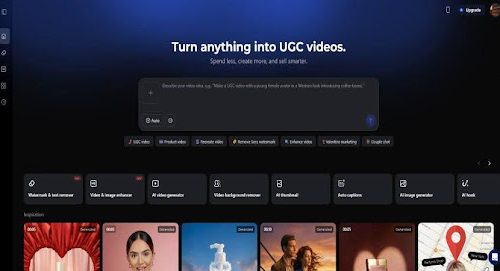
Applying Localization Management Principles to MMA Promotions and Global Expansion
In today’s interconnected world, the sports industry is increasingly expanding its reach to global markets, and Mixed Martial Arts (MMA) promotions are no exception. As MMA organizations strive to grow their fan base and secure lucrative international partnerships, applying localization management principles becomes crucial for success. In this blog post, we will explore how localization can enhance the global expansion of MMA promotions, focusing on various aspects that need to be considered.
Overview of MMA Promotions and Global Expansion
MMA has experienced remarkable growth over the past few decades, evolving into a mainstream sport with a massive global following. Promotions such as the Ultimate Fighting Championship (UFC) have played a pivotal role in popularizing the sport and attracting a diverse fan base. However, as these promotions seek to expand their reach to new markets, they encounter unique challenges related to cultural differences, language barriers, and regulatory requirements and that’s where localization management comes in.
Understanding Localization in MMA Promotions
Localization in MMA promotions refers to the process of adapting and tailoring various elements of the sport to suit the preferences, expectations, and cultural nuances of specific target markets. This includes not only translating content into different languages but also considering cultural sensitivities, customs, and traditions when designing marketing campaigns, organizing events, and creating fighter profiles.
Importance of Cultural Adaptation in Global Expansion
Cultural adaptation not only demonstrates respect for diverse cultures but also serves as a powerful tool for attracting and retaining loyal fans. By immersing themselves in the local culture, MMA promotions can tap into the emotional and aspirational aspects that drive consumer engagement. Through careful research and incorporation of cultural elements, promotions can effectively navigate the intricate tapestry of global markets and create meaningful connections that transcend borders. Such efforts not only enhance brand perception but also foster a sense of inclusivity and belonging among fans worldwide.
Localizing Marketing and Advertising Strategies for MMA Promotions
Marketing and advertising are key drivers of success for MMA promotions. When expanding internationally, it is essential to tailor these strategies to resonate with the local audience. This involves adapting messaging, visuals, and promotional channels to suit the cultural context and preferences of the target market. Localization experts play a vital role in identifying the most effective marketing and advertising techniques, ensuring that the promotional efforts are engaging, relevant, and culturally sensitive.
Language and Communication Considerations in International Markets
Language plays a significant role in effective communication. Localization of MMA promotions involves not only translating content but also considering linguistic nuances, idiomatic expressions, and local colloquialisms. Hiring native speakers and professional translators can help ensure accurate and culturally appropriate communication. Additionally, adopting multilingual customer support and a localized social media presence can further enhance engagement and foster a sense of inclusivity.
Adapting Event Formats and Production for Global Audiences
By tailoring MMA event formats to the specific tastes and traditions of each host country, promotions can create an atmosphere that resonates deeply with local audiences. Incorporating region-specific customs, rituals, or entertainment elements not only adds authenticity but also cultivates a sense of pride and ownership among spectators. Additionally, adjusting production elements like commentary, graphics, and presentation styles in accordance with cultural and linguistic preferences further enhances the immersive experience, ensuring that every event feels uniquely tailored to the target market.
Localization of Fighter Profiles and Storytelling
Fighter profiles and storytelling are integral parts of MMA promotions. To effectively connect with global audiences, it is essential to localize fighter profiles by highlighting their personal stories, achievements, and cultural backgrounds. By sharing relatable narratives, promotions can create emotional connections with fans and foster a sense of identification with the athletes. This localization approach enables the promotion to resonate with diverse audiences, strengthening their fan base and brand loyalty.
Legal and Regulatory Challenges in International Expansion
Embarking on global expansion exposes MMA promotions to a complex web of legal and regulatory challenges. The diverse legal landscapes in each country necessitate a thorough understanding of combat sports regulations, encompassing licensing requirements, broadcasting rights, and health and safety protocols.
To navigate these hurdles, promotions must actively familiarize themselves with local laws, seeking guidance from legal experts well-versed in the intricacies of each jurisdiction. Establishing strong partnerships with local governing bodies not only facilitates compliance but also fosters a cooperative relationship, enabling promotions to operate within the legal framework of each market. Adhering to these regulations is crucial for ensuring a seamless and successful expansion, safeguarding the reputation of the promotion, and promoting the integrity of the sport.
Managing International Partnerships and Collaborations
Establishing international partnerships and collaborations plays a pivotal role in the global expansion of MMA promotions. By forging strong connections with local stakeholders, including broadcasters, sponsors, and regional MMA organizations, promotions can leverage their expertise, networks, and resources to penetrate new markets successfully. These partnerships not only facilitate market entry but also enhance visibility and brand recognition in foreign territories.
To ensure smooth collaboration, localizing partnership agreements, contracts, and negotiation processes becomes imperative. This localization effort helps align interests, expectations, and legal requirements across diverse markets, fostering mutually beneficial relationships and paving the way for long-term growth and expansion.
Measuring Success: Evaluating the Impact of Localization in MMA Promotions
Measuring the success of localization efforts is crucial for ongoing improvement and decision-making. Key performance indicators (KPIs) such as audience growth, ticket sales, viewership, social media engagement, and brand awareness can provide valuable insights into the effectiveness of localization strategies. Regular analysis and evaluation of these metrics help MMA promotions gauge their impact, identify areas for improvement, and make data-driven decisions to optimize their localization efforts.
Conclusion
Localization management principles are essential for any MMA promotion looking to expand globally. By understanding the cultural nuances of each local market, an MMA promotion can tailor its messaging and marketing campaigns to create a more effective strategy. Additionally, by building relationships with key influencers in each region and leveraging existing infrastructure within those regions, an MMA promotion can maximize its global reach. Ultimately, localization management is necessary to ensure that an MMA promotion’s expansion plans are successful and sustainable over time.


























